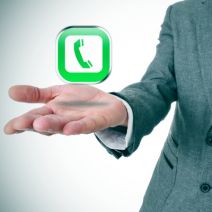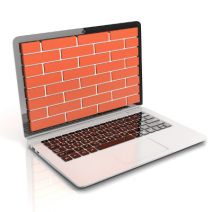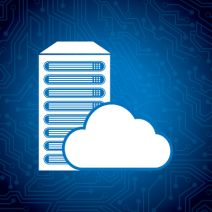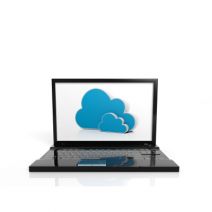SMART Blog
 Implementing proper IT solutions is challenging for the average small business, and difficult without the aid of a proper IT department. Unfortunately, organizations that can’t afford a full-time in-house IT department sometimes resort to methods of managing their technology that can be dangerous for business continuity, data storage, compliance, and security.
Implementing proper IT solutions is challenging for the average small business, and difficult without the aid of a proper IT department. Unfortunately, organizations that can’t afford a full-time in-house IT department sometimes resort to methods of managing their technology that can be dangerous for business continuity, data storage, compliance, and security.
 Technology changes at an astounding rate. Because of constant technological improvements, some users feel the need to replace their devices the second a bigger and better technology is launched. On the other hand, the increase in reliability of computers in recent years has has hindered the sales of new PCs.
Technology changes at an astounding rate. Because of constant technological improvements, some users feel the need to replace their devices the second a bigger and better technology is launched. On the other hand, the increase in reliability of computers in recent years has has hindered the sales of new PCs.
 Voice over Internet Protocol, or VoIP for short, is an increasingly-common communications protocol in businesses. It aids with providing reliable communication solutions to all users within an organization, without the need for extensive telephone cabling. However, if your VoIP experiences hiccups from time to time, here are a few troubleshooting tips.
Voice over Internet Protocol, or VoIP for short, is an increasingly-common communications protocol in businesses. It aids with providing reliable communication solutions to all users within an organization, without the need for extensive telephone cabling. However, if your VoIP experiences hiccups from time to time, here are a few troubleshooting tips.
 Thousands of gadgets are produced each year designed to work with existing technology and to deliver marginal-to-significant increases in an individual’s productivity. Each year, many of these gadgets fail in some way or fall out of public consciousness, becoming nothing but an answer to a trivia question a decade down the road.
Thousands of gadgets are produced each year designed to work with existing technology and to deliver marginal-to-significant increases in an individual’s productivity. Each year, many of these gadgets fail in some way or fall out of public consciousness, becoming nothing but an answer to a trivia question a decade down the road.
 Whenever you receive an email, there’s the possibility that it’s a spam message sent to infect you with viruses or malware, or to just waste your time. This chance isn’t just negligible; in fact, it’s enough to warrant concern for anyone utilizing email as a communication medium, including business owners. Thankfully, users of Gmail will soon be having a much easier time knowing the origin of their messages, and whether or not they were sent over a secure connection.
Whenever you receive an email, there’s the possibility that it’s a spam message sent to infect you with viruses or malware, or to just waste your time. This chance isn’t just negligible; in fact, it’s enough to warrant concern for anyone utilizing email as a communication medium, including business owners. Thankfully, users of Gmail will soon be having a much easier time knowing the origin of their messages, and whether or not they were sent over a secure connection.
 Smartphones have been great for enhanced productivity and accessibility, but they can also result in some rather rude social behavior. While productivity might be on the rise, manners seem to be in decline, thanks to people not knowing how to properly use their smartphones in public. Here are four smartphone etiquette tips that every device owner should abide by.
Smartphones have been great for enhanced productivity and accessibility, but they can also result in some rather rude social behavior. While productivity might be on the rise, manners seem to be in decline, thanks to people not knowing how to properly use their smartphones in public. Here are four smartphone etiquette tips that every device owner should abide by.
 One minute you’re browsing trusted sites on the Internet, the next, your PC freezes up and displays the dreaded blue screen of death, along with a fake tech support message. The unsuspecting computer user calls the provided phone number, not realizing he or she has just fallen for a very expensive scam. So what are you to do if faced with this situation?
One minute you’re browsing trusted sites on the Internet, the next, your PC freezes up and displays the dreaded blue screen of death, along with a fake tech support message. The unsuspecting computer user calls the provided phone number, not realizing he or she has just fallen for a very expensive scam. So what are you to do if faced with this situation?
 We all know how important an Internet connection is to the success of your business. It takes an exceptionally powerful cabling protocol to ensure that your business’s Internet connection remains constant. While many businesses take advantage of big cable companies like Time Warner Cable and Comcast for their Internet needs, a select few have the option of Google Fiber.
We all know how important an Internet connection is to the success of your business. It takes an exceptionally powerful cabling protocol to ensure that your business’s Internet connection remains constant. While many businesses take advantage of big cable companies like Time Warner Cable and Comcast for their Internet needs, a select few have the option of Google Fiber.
SMART Services is Ready to Help Your Business Make the Transition
Windows 10 is making its rounds in the business environment, which is hardly surprising. Microsoft is known for making great operating systems that are ideal for both consumer use and workplace productivity. Though Windows 10’s adoption rate has been somewhat slow, it’s expected to be on par, or even surpass, other Windows OSs in terms of sheer usability over the next few years.
 Mobile devices in the workplace are a complex conundrum that many organizations don’t know how to face properly. On one hand, they allow workers to stay ahead of their schedules, and let them stay productive even when they’re not in the office. On the other hand, they present a serious security risk that needs to be addressed. How does your business handle mobile devices in the workplace?
Mobile devices in the workplace are a complex conundrum that many organizations don’t know how to face properly. On one hand, they allow workers to stay ahead of their schedules, and let them stay productive even when they’re not in the office. On the other hand, they present a serious security risk that needs to be addressed. How does your business handle mobile devices in the workplace?
 Nothing can damage a computer quite like user error. It’s sad when this happens because it’s often the case that the resulting issues could’ve easily been prevented if the user simply knew of PC best practices. Take for example these three easily-preventable PC mistakes that will do your computer harm.
Nothing can damage a computer quite like user error. It’s sad when this happens because it’s often the case that the resulting issues could’ve easily been prevented if the user simply knew of PC best practices. Take for example these three easily-preventable PC mistakes that will do your computer harm.
 Cloud computing is a normal part of today’s business landscape. In fact, in a recent poll of IT and business executives by Harvard Business Review and Verizon, 84 percent of respondents said they increased their use of cloud services in the past year-- 39 percent said they had “increased significantly.” However, with more users accessing cloud data, business owners must be mindful of employee permissions.
Cloud computing is a normal part of today’s business landscape. In fact, in a recent poll of IT and business executives by Harvard Business Review and Verizon, 84 percent of respondents said they increased their use of cloud services in the past year-- 39 percent said they had “increased significantly.” However, with more users accessing cloud data, business owners must be mindful of employee permissions.
 While it might be nice to imagine making $500 a day by working from home, this is the type of thing only really seen in a website’s spam comments. If these annoyances are common, know that you’re not alone. Even the most innocent sites can be stricken with this issue. So, how can you minimize spam comments?
While it might be nice to imagine making $500 a day by working from home, this is the type of thing only really seen in a website’s spam comments. If these annoyances are common, know that you’re not alone. Even the most innocent sites can be stricken with this issue. So, how can you minimize spam comments?
 We live in a world where money is the solution to all problems. If you have a problematic piece of technology, what do you do to fix it? You can call in the professionals, or shell out for new hardware or software. Either way, you’re spending money, but the difference in how much you need to spend depends on the policies your IT support budget specifies.
We live in a world where money is the solution to all problems. If you have a problematic piece of technology, what do you do to fix it? You can call in the professionals, or shell out for new hardware or software. Either way, you’re spending money, but the difference in how much you need to spend depends on the policies your IT support budget specifies.










